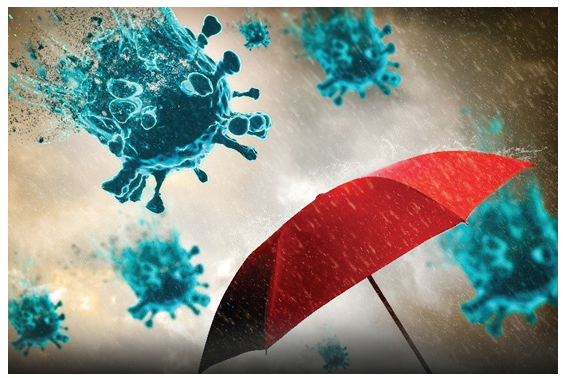
How to navigate through health risks in B’luru this monsoon
With heavy rains leading to a rise in viral infections, health experts emphasise the importance of hygiene to protect yourself during the rainy season
NT Bengaluru: With heavy rains lashing Bengaluru, the Indian Meteorological Department (IMD) has issued an orange alert, signalling residents to take precautions to ensure their health and safety during this monsoon season. The monsoon season in the city brings a host of health challenges, particularly in the form of waterborne and mosquito-borne diseases. Dr Aravinda S N, Lead Consultant in Internal Medicine at Aster RV Hospital, highlights the increased prevalence of waterborne diseases during the monsoon. “Heavy rains and floods contaminate water sources, leading to outbreaks of diseases like Cholera, Typhoid, Gastroenteritis, Hepatitis A and Leptospirosis,” he explains. Cholera, for instance, is caused by ingesting food or water contaminated with bacteria, resulting in severe diarrhoea and dehydration. Similarly, Typhoid is spread through contaminated food and water, while Hepatitis A is a viral liver disease transmitted in the same manner. The risk of foodborne illnesses also escalates during this season. Dr Aravinda advises, “It’s essential to drink only boiled, filtered, or bottled water and avoid consuming street food or food prepared in unhygienic conditions. Maintaining good hygiene, such as washing hands thoroughly with soap before meals, is crucial.” Food safety should not be overlooked either.
“Humidity can lead to quick spoilage of food. To mitigate this, practice hygienic food preparation,” he suggests. Perishable items should be refrigerated and all fruits and vegetables should be washed under running water. Dr Aravinda also warns against consuming food left at room temperature for long periods, as this can lead to food poisoning. The monsoon season is notorious for creating ideal breeding conditions for mosquitoes, which increases the risk of diseases such as dengue and malaria. Dr Basavaraj S Kumbar, Consultant in Internal Medicine at Aster Whitefield Hospital, explains, “Dengue is spread by mosquitoes and its symptoms include high fever, severe headaches and joint pain. Malaria, on the other hand, is caused by Plasmodium parasites, leading to flu-like symptoms.” To prevent mosquito-borne diseases, it’s vital to eliminate stagnant water around homes, which can be a breeding ground for mosquitoes. Dr. Kumbar recommends using mosquito nets while sleeping and applying repellents containing DEET or picaridin. He also stresses the importance of wearing long-sleeved clothing and ensuring proper drainage of rainwater. In addition to waterborne and mosquito-borne diseases, the increased humidity during the rainy season can lead to respiratory illnesses such as influenza and bronchitis. Dr Kumbar states, “People should enhance their hygiene practices, wash hands regularly and maintain distance from those who are sick.” Keeping warm and dry and ensuring that living spaces are well-aerated, can also help mitigate these risks.
“Staying hydrated is essential,” he adds, recommending boiled or filtered water. Including Vitamin C and Vitamin D in one’s diet, along with zinc supplements, can boost immunity during this season. “Taking care of emotional health is also crucial, as the rainy season can sometimes lead to stress and anxiety,” he advises.
 English daily published in Bengaluru & Doha
English daily published in Bengaluru & Doha






